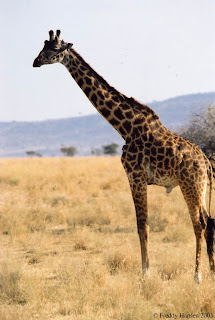
The concept of evolution was given by Empedocle and Buffon. The trend of evolution was first explained by Lamarck. Lamarck is known as the father of evolutionary theories. Evolution means gradual change from simple to complex forms with the passage of time. Organic Evolution means evolution of living beings. Term organic evolution is given by Hebert Spencer. Organic evolution can be defined as 'Adaptations through Generations'. Inorganic evolution means evolution of non living things e.g. evolution of rivers, rocks, mountains, etc. Evolution is defined as historical and developmental race of organisms with variation. The main theme of evolution is 'Descent with modification' i.e. docterine of desires. Biological meaning of evolution is gradual changes. The process of evolution is continuous but very slow, taking place even now.
Main Postulates of Organic Evolution are:
Earlier organisms were simpler.
They gradually changed into complex organisms.
They are inter related because of common origin.
They have common shelter (earth) and environment.
Evolution is generally slow, continuous, irreversible and progressive. For evolution the most important requirement is variation. The ultimate source of organic evolution is mutation. The evolution of any species can be considered as a sum total of the species 'Adaptive changes preserved by Natural Selection'. One of the most important factors for the development of a new species is the 'Geographical Isolation'.
Theories of Organic Evolution
From time to time, various theories of organic evolution have been proposed to explain the mechanism of origin and evolution of new species. These include:
Lamarckian Theory (Lamarckism)
Environment Effect
J.B. de Lamarck (1744-1829), a French naturalist, who introduced the word biology. He proposed the theory of 'Inheritance of Acquired Characters' in his book entitled Philosophic Zoologique. He was of the view that:
Effects of Use and Disuse of Organ
Environment influences change of characters of an organisms due to changes in their needs e.g., in dry soil, the root system of plants become more extensive than in wet soil; plants grown in shade develop larger leaves than those grown in open etc. Constantly used organs become highly developed and modified in response to needs, while those disused results into degeneration (use and disuse of organs). Lamarck cited the example of evolution of Giraffe, presumably from the ancestors having equal sized fore and hind limbs and a short neck. The Giraffe lived in African desert, which have no vegetation except a few trees. Their continued efforts through many generations for getting food from high up foliage, resulted into longer fore legs and much elongated neck. Similarly, the absence of limbs in snakes and presence of vestigial organs in animals have been explained by Lamarck on the basis of their disuse. Finally, the modifications which an organism acquires during its life time, gets inherited by its offsprings.
Criticism
The observation that we make in our daily life head to a negative approach to Lamarckism. Blacksmith develops tough and powerful biceps by continued use but are not inherited by his offsprings. Constant use of eyes for reading, writing and other minute works develop impaired sight. The women in China use iron shoes to keep their feet short, but
 their newly born babies have normal feet. Blind, deaf and lame parents give birth to normal children.
their newly born babies have normal feet. Blind, deaf and lame parents give birth to normal children.Germplasm Theory
The greatest critic of Lamarckism was August Weismann, who in1895 proposed the Germplasm Theory. He went on cutting the tails of rats for over twenty generations but failed to get tailless offspring. He suggested that acquired characters effect the somatic cells (somaplasm) and not the germ cells (germplasm) and are thus not inherited.
Neo-Lamarckism:
The modified form of Lamarckism is called Neo-Lamarckism. Neo-Lamarckism like Gadow, Cope, Spencer, Dali, McDougall etc are of the opinion that those characters are inherited which result from the interaction between heritable factors (genes) and the environment.


0 comments:
Post a Comment